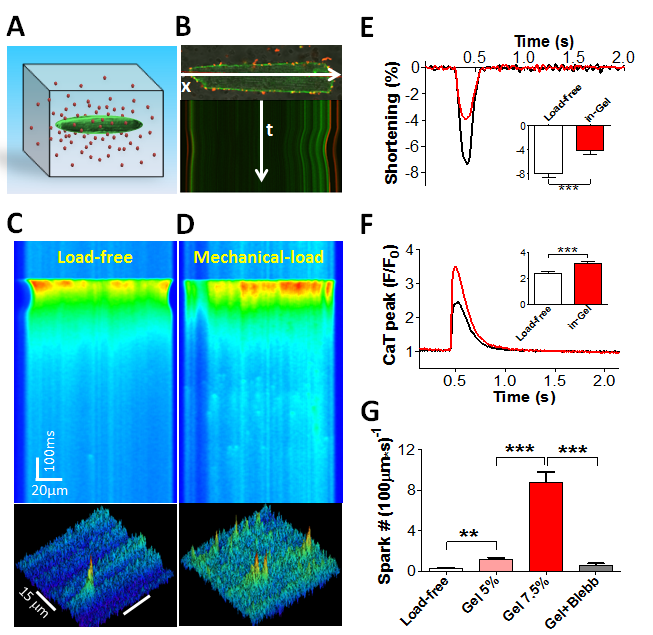⇒ Mechano-chemo-transduction linking contraction → Ca2+ signaling

The heart must adjust the contractile force to compensate for changes in mechanical load to meet the body’s hemodynamic demands. Cardiomyocytes have intrinsic mechanisms for sensing mechanical load and regulating contractility. However, the underlying mechano-chemo-transduction mechanism is not fully understood.Recently we developed an innovative ‘Cell-in-Gel’ technology to control 3-D mechanical stress at the single cell level to enable study of how mechanical stress feeds back to modulate the Ca2+ signaling system. This research is on-going in our lab and is highly promising to generate new insights towards mechano-chemo-transduction in cardiac myocytes.

 |
|
Publications
- Jian Z, Han H, Zhang T, Puglisi J, Izu LT, Shaw JA, Onofiok E, Erickson JR, Chen YJ, Horvath B, Shimkunas R, Xiao W, Li Y, Pan T, Chan J, Bányász T, Tardiff JC, Chiamvimonvat N, Bers DM, Lam KS, Chen-Izu Y*. Mechanochemotransduction During Cardiomyocyte Contraction Is Mediated by Localized Nitric Oxide Signaling. Science Signaling (2014) 317:ra27. PMID: 24643800; PMC4103414l
- Chen-Izu Y*, Ling Chen, Tamás Bányász, Stacey L. McCulle, Steven M. Scharf, Leighton T. Izu, C. William Balke. Hypertension-induced remodeling of cardiac excitation-contraction coupling in ventricular myocytes occurs prior to hypertrophy development. Am J Physiol. (2007) 293(6):H3301-10
